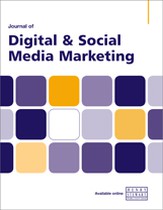ChatGPT for marketers: Limitations and mitigations
Abstract
As artificial intelligence (AI) technologies continue to revolutionise various industries, marketers have eagerly embraced AI-powered tools to enhance their strategies and reach their target audiences more effectively. This paper provides a critical examination of the limitations and failures of ChatGPT — the widely-used language model based on GPT architecture, which has gained significant attention as a potential asset for marketers in assisting marketers. Through a comprehensive analysis, the paper explores how ChatGPT falls short in understanding consumer needs and preferences, its potential to generate misleading or inaccurate information, implications for branding and communication strategies and lack of marketing expertise. Moreover, ethical concerns and risks associated with ChatGPT’s deployment in marketing are discussed, highlighting issues such as deceptive practices and data security. Case studies exemplify instances where ChatGPT has fallen short, while offering insights into successful strategies adopted by companies to address its limitations. The paper concludes with a call for responsible implementation through domain-specific fine-tuning, prompt-engineering and general human oversight and ongoing evaluation of AI technologies to enhance their utility and mitigate their failures within marketing.
The full article is available to subscribers to the journal.
Author's Biography
Despina Christou is the chief AI scientist at GoCharlie.ai and a PhD candidate in natural language processing at the Aristotle University of Thessaloniki, where her research focuses on developing large language models for creative writing and multimodal models for generating marketing content. She obtained her BSc in applied informatics from the University of Macedonia, and holds an MSc in AI from the University of Edinburgh. With over eight years of experience as a machine-learning engineer, Despina has led AI teams for a number of Fortune 500 companies. She is also a reviewer at IEEE.
Kostas Hatalis is a deep-learning researcher with over 12 years of experience in the field of neural networks, time series analysis and intelligent agents. He holds a PhD in electrical engineering from Lehigh University, where he was honoured as a P.C. Rossin Doctoral Fellow; he also holds an MS in computer science. His graduate research included work in developing deep-learning and probabilistic forecasting frameworks. His expertise spans various disciplines, including natural language generation, large language models, forecasting and optimisation. Kostas is also the founder of GoCharlie.ai, a prominent venture and AI research lab dedicated to creating goal-driven and multi-modal language models and autonomous agents for content creation workflows.
Mark G. Staton Mark Staton is an associate professor of marketing at Western Washington University, where he teaches digital marketing and marketing strategy at both the undergraduate and graduate levels. He earned his PhD in marketing from the Foster School of Business at the University of Washington. His research interests include consumer psychology, digital marketing, marketing pedagogy and the intersection of marketing and public policy. He serves on the editorial board of the Journal of Marketing Education.
Michael Frechette is an associate professor of marketing at the Welch College of Business and Technology at Sacred Heart University. Dr Frechette holds a dual PhD in international business and marketing from Saint Louis University, and an MBA from Tsinghua University. His research examines how consumers experience wellbeing and satisfaction in modern and digital contexts.
